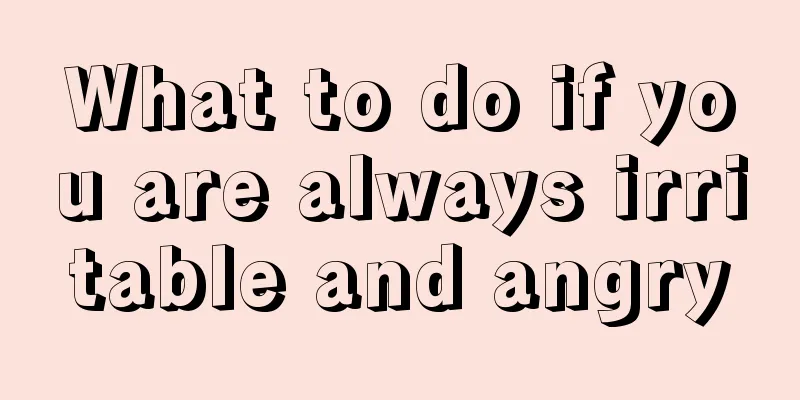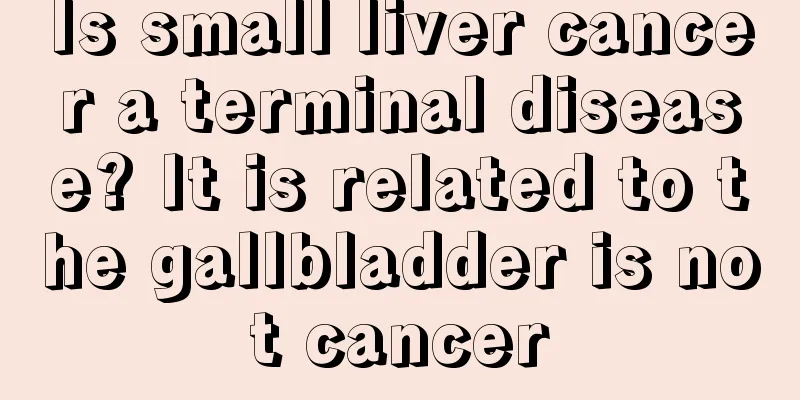What to do if you are always irritable and angry

|
If you are always irritable and angry, it will definitely have a bad effect on your body. When the symptoms worsen, the effect will become more and more intense. Many patients even need tranquilizers to relieve the symptoms. Otherwise, they will not be able to live well. It will also cause impatience when encountering things. Some patients must also take corresponding psychological treatments. ① Treatment is mainly based on mood stabilizers, which can treat and prevent seizures. Based on mood stabilizers, other drugs can be used in combination according to the condition; ② Timely monitor the effects and side effects of drugs, adjust drugs according to the situation, and pay attention to the interactions between drugs when using drugs in combination; ③ For manic states, one mood stabilizer is the first choice for treatment. Based on the condition, timely combination of drugs, such as another mood stabilizer, antipsychotic drugs, or benzodiazepines, can be used. ④ Commonly used mood stabilizers include lithium carbonate and anticonvulsants. Anticonvulsants include sodium valproate, magnesium valproate, carbamazepine, and lamotrigine; ⑤ Antipsychotics are mainly new atypical antipsychotics (such as quetiapine, olanzapine, risperidone, aripiprazole, ziprasidone, etc.); ⑥ Sedative hypnotic benzodiazepines (diazepam, etc.). Psychotherapy Add psychotherapy to medication. Identify and improve patients' negative cognitive, emotional and behavioral patterns, provide crisis intervention, and educate patients and their families about the disease to improve treatment efficacy, enhance social adaptability and improve social functions, increase compliance and reduce relapses. Treatment Course Establish the concept of long-term treatment and adopt comprehensive treatment. ① Control acute excitement during the acute treatment period. Treatment course: generally 6-8 weeks; ② Consolidation treatment period: consolidate the treatment effects of the acute phase and prevent symptom fluctuations. Treatment course: 2-3 months, the drug dosage generally remains unchanged. ③ During the maintenance treatment period, prevent relapse and restore social functions. Taper the dose of non-mood stabilizers gradually under careful observation. There is no consensus on how long maintenance therapy should last. The drug dosage and duration of maintenance therapy depend on the patient's specific situation and vary from person to person, and the treatment plan is individualized. For patients with multiple relapses, the drug dosage can be reduced while observing and gradually discontinued after the condition stabilizes for 2-3 cycles of previous attacks or after maintenance treatment for 2-3 years. If there are signs of relapse during the medication withdrawal period, resume the original treatment plan in a timely manner, and provide a longer maintenance treatment period after relief. Patients with early onset and a positive family history should undergo maintenance treatment. |
<<: What to do if you get irritated when you see your child
>>: How to cure insomnia and irritability
Recommend
Why does my sputum contain blood at night?
It is common for people to have a lot of sputum w...
The importance of parents accompanying their children
With the development of modern transportation tec...
Should I continue with radiotherapy for gastric cancer if I have a fever during radiotherapy?
Generally speaking, if a patient develops a fever...
The benefits of meditating before going to bed every day
In our daily lives, we all like to pursue a peace...
How to care for your hair after dyeing?
Changing our hairstyle will change our entire tem...
How to prevent the occurrence of liver cancer? There are two major methods to prevent liver cancer
Liver cancer is one of the most common malignant ...
Which type of Tai Chi should be practiced by the weak and sick? It turns out that this type of Tai Chi is the most effective
Tai Chi is a fitness exercise that many middle-ag...
How to recover quickly from rib injury
"It takes a hundred days to heal a broken bo...
The main cause of malignant melanoma
If melanoma is not cured in the early stage, it w...
Can fish bones be digested?
Fish is a very common food ingredient in our live...
How to check for early breast cancer
Like other malignant tumors, we can hardly see an...
What is normal blood pressure at the age of 28
No matter which stage of life you are in, you sho...
What are the commonly used chemotherapy regimens for breast cancer in clinical practice?
In recent years, breast cancer has gradually rise...
Drugs for treating pancreatic cancer abroad
The best drug for pancreatic cancer treatment; th...
Seven-day fasting therapy
Fasting means abstaining from food, which also is...









